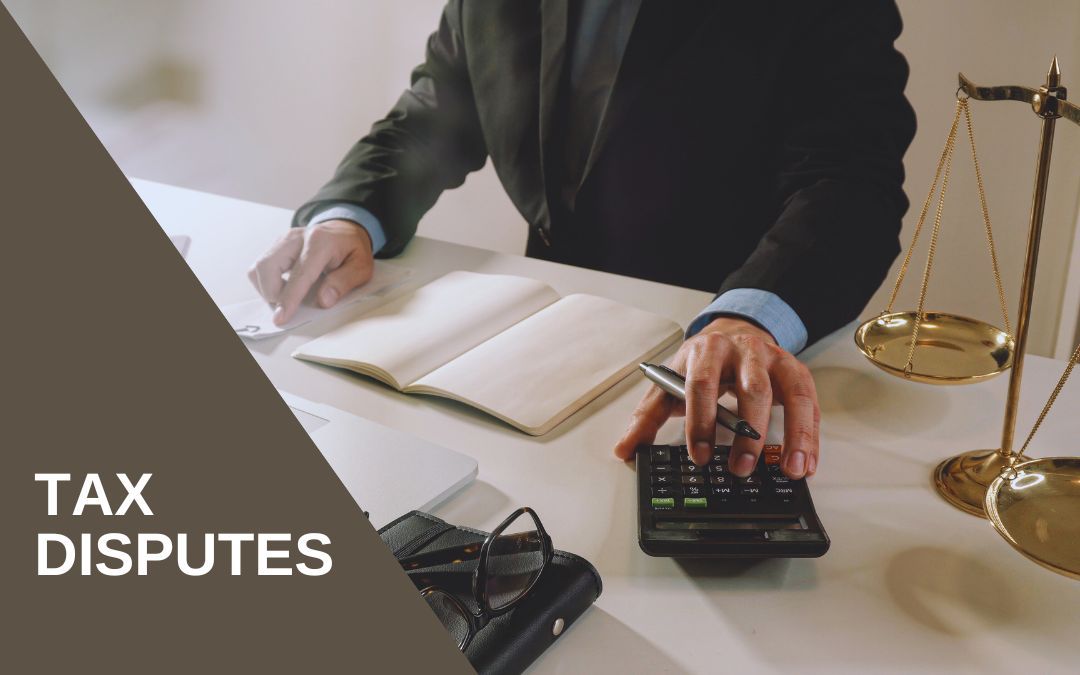
Frequently Asked Questions (FAQs) About Tax Disputes
What is a tax dispute?
A tax dispute arises when the Internal Revenue Service (IRS) disagrees with your reported tax liability. This discrepancy can stem from various reasons, such as claimed deductions or credits, unreported income, or complex tax interpretations. The IRS might initiate the dispute through an audit, notice of deficiency, or other communication questioning your tax return.
This article is for general informational purposes only and is not legal advice. Contact us today to discuss your specific situation.
What are my rights during an IRS audit?
You have fundamental rights during an IRS audit, including the right to remain silent, the right to representation by an attorney or tax professional, and the right to appeal any audit findings. Remember, you’re not obligated to answer every question or agree with the IRS’s assessment. Consulting a qualified tax professional can safeguard your rights and ensure you navigate the audit process effectively.
This article is for general informational purposes only and is not legal advice. Contact us today to discuss your specific situation.
What should I do if I receive a notice of deficiency?
A notice of deficiency is a formal document outlining the IRS’s claim that you owe additional taxes. This notice comes with a deadline to respond, typically 30 days. Don’t ignore it! Seeking legal counsel promptly is crucial to explore your options, such as filing a protest, requesting an appeals conference, or negotiating a settlement with the IRS.
This article is for general informational purposes only and is not legal advice. Contact us today to discuss your specific situation.
What are the different types of tax appeals?
If you disagree with the IRS’s determination, you have various avenues for appeal. The first stage involves an informal conference with an IRS appeals officer. If unsuccessful, you can proceed to a formal appeal before the U.S. Tax Court, a specialized court dedicated to tax disputes. Depending on the issue, you might also have the option of appealing to your local federal district court or the U.S. Court of Federal Claims.
This article is for general informational purposes only and is not legal advice. Contact us today to discuss your specific situation.
What happens if I can't pay my tax debt?
Facing significant tax debt can be daunting. Fortunately, the IRS offers several options for taxpayers struggling to fulfill their obligations. These include installment agreements, penalty waivers, and, in rare cases, offers in compromise, where you can settle your debt for a lesser amount. Consulting a tax attorney can help you determine the most suitable solution for your specific situation.
This article is for general informational purposes only and is not legal advice. Contact us today to discuss your specific situation.
Can I deduct legal fees incurred in a tax dispute?
Generally, legal fees associated with resolving tax disputes are deductible as miscellaneous itemized deductions, subject to certain limitations. However, specific conditions must be met for the deduction to apply. Consulting a tax professional can clarify your eligibility and the potential tax benefits of seeking legal representation.
This article is for general informational purposes only and is not legal advice. Contact us today to discuss your specific situation.
What are the penalties for tax evasion?
Tax evasion, the intentional attempt to avoid paying taxes owed, is a serious offense with significant consequences. Penalties can include civil fines, interest charges, and even criminal prosecution, resulting in imprisonment. If you’re unsure about your tax obligations or suspect you might have made an error, seeking professional guidance is crucial to avoid potentially severe repercussions.
This article is for general informational purposes only and is not legal advice. Contact us today to discuss your specific situation.
How can I avoid tax disputes in the future?
Proactive measures can significantly reduce your risk of encountering tax disputes. These include filing accurate and complete tax returns, keeping thorough records of your income and expenses, seeking professional guidance for complex tax situations, and communicating promptly with the IRS if you receive any notices or inquiries.
This article is for general informational purposes only and is not legal advice. Contact us today to discuss your specific situation.
What resources are available to help me with my tax dispute?
Several resources can assist you in navigating a tax dispute. The IRS website provides helpful information and forms, while independent organizations like the National Association of Tax Attorneys offer guidance and support. Consulting a qualified tax attorney specializing in tax disputes can be your most valuable resource, providing personalized advice and legal representation throughout the process.
This article is for general informational purposes only and is not legal advice. Contact us today to discuss your specific situation.
What is the most important thing to remember about tax disputes?
The most critical takeaway is that you’re not alone. Tax disputes can be challenging, but you have rights and options. Seeking professional guidance from a qualified tax attorney can empower you to navigate the complexities of the legal system, protect your interests, and achieve a favorable resolution.
This article is for general informational purposes only and is not legal advice. Contact us today to discuss your specific situation.
